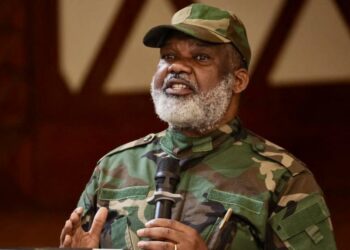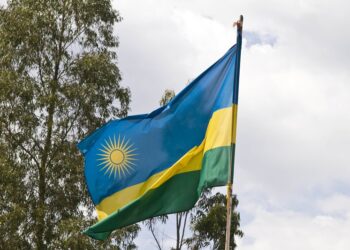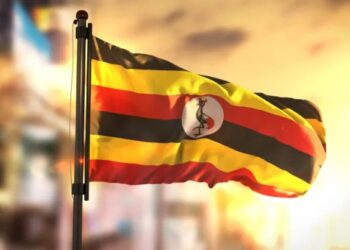Africa is home to an incredible amount of diverse natural capital. Nearly 30 percent of the world’s mineral reserves, 12 percent of its oil reserves, and 8 percent of its natural gas are located in Africa. The continent is also home to 40 percent of the world’s gold reserves. Moreover, the continent boasts the largest reserves of cobalt, diamonds, uranium, and platinum in the world. In other words, 30 percent of the world’s rare earth deposits are in Africa. These elements are central to the global economy, and their importance is rising rapidly—especially in various strategic high-tech industries such as semiconductors, batteries, and green energy. The continent also possesses 65 percent of the world’s arable land.
The African Renaissance became a guiding principle in the search for a new post-dependency, post-racist identity, and for creating some distance from ongoing dependency on Western-dominated markets and ideologies. Key to this concept were stable democracies following African traditions and the circulation of goods on the continent; thus, African continental economic empowerment. Whereas classical economics focused on barter, exchange, and the accumulation of material capital, the Renaissance tradition focuses on production based on human creativity. For this reason, Renaissance economics emphasizes education, science, incentives, and entrepreneurship.
Following the abolition of slavery in the 19th century, Europe partitioned and colonized the continent and presided over varied economic regimes. These were settler colonies, peasant-agricultural colonies, and concession company colonies. Of the three, settler colonies developed most, although at the expense of the African majority. Independence came after the Second World War, and Africa entered its postcolonial phase. After a promising start with the decade of the 1960s, African economies went into decline in the 1970s, necessitating governments to borrow from the World Bank and the International Monetary Fund (IMF) in order to revamp their economies. The structural adjustment programs they were required to implement as a condition for the loans proved to be destructive to African economies.
Africa’s Trade Revolution: Navigating the New Global Landscape
The major change in global manufacturing in the past 30 years has been the explosive rise of China. It became the world’s leading exporter in 2009, and in 2010, it overtook the United States, becoming the top producer of manufactured goods. Having been much poorer than most countries in Africa in 1980, by 2021 China had become a middle-income country with a per capita income of US$12,500, and its economy now ranks second in the world. In a sign of the stickiness of the colonial development model of resource extraction—where African countries systematically exported raw materials and natural resources to European powers and imported value-added manufactured goods at higher prices—the round-tripping model, which has been responsible for huge foreign exchange reserve leakages and sustained balance of payments pressures, has persisted, even as Africa’s direction of trade has shifted eastward. Today, exports of goods and services represent the value of all goods and other market services provided to the rest of the world. They include the value of merchandise, freight, insurance, transport, travel, royalties, license fees, and other services, such as communication, construction, financial, information, business, personal, and government services. They exclude compensation of employees and investment income (formerly called factor services) and transfer payments.
Sub-Saharan Africa’s success in the global market rests on deepening regional integration to scale up supply capacity and build regional value chains. The establishment of the Africa Continental Free Trade Agreement (AfCFTA) presents opportunities to boost intra-African trade, strengthen the complementarities of production and exports, create employment, and limit the impact of commodity price volatility on the participants. It also provides for increased resilience to global shocks, promotes the exchange of a more diverse set of goods, and contributes to reducing conflicts. Greater regional integration is paramount for AfCFTA to succeed. The ‘’African Trade Report 2023: Export Manufacturing and Regional Value Chains in Africa under a New World Order,’’ which outlines various policies and initiatives to alleviate trade constraints and catalyze the emergence of vibrant RVCs in Africa. It shows that the confluence of global supply chain (GSC) realignment under the new world order and the implementation of the AfCFTA provides a unique opportunity for accelerating manufacturing export growth in Africa.
In particular, rules of origin that prioritize local value addition across the region will induce technology transfer and long-term investment. The report also reveals large untapped export potential in intra-African trade across all subregions, pointing to significant growth opportunities under the continental free trade area. South Africa, one of the most diversified economies in the region, has long been the leading driver of intra-African trade, accounting for 20.5 percent of the total in 2022. More broadly, the southern Africa region, despite recording a slight year-on-year decline of 4.2 percent, continues to contribute the lion’s share of intra-African trade, accounting for 47.4 percent in 2022. While exports of raw materials have benefited some African economies, diversification of income sources can drive national incomes. This is already being seen in Nigeria, which is home to vast natural gas and oil reserves and came out on top African countries with the highest gross domestic product (GDP) in 2021. This success was also attributable to the country’s rapidly expanding financial sector, which grew from one percent of the total GDP in 2001 to ten percent in 2018.
Yet, colonial-era borders still pose significant logistical and regulatory challenges. As experts Acha Leke and Landry Signé observe, “While the AfCFTA is a critical step towards deeper economic integration, these outdated borders remain major obstacles.” The cost of moving goods across these borders remains exorbitantly high. A World Bank report highlights that the average cost to export a container from Africa is nearly double that of other regions, underscoring the economic chokeholds imposed by these historical boundaries. Advocates for restrictive visa regimes argue that they are necessary for security, job protection, or managing immigration. However, these policies frequently backfire. Charles Kenny and Megan O’Donnell in Foreign Policy contend, “Restrictive policies often exacerbate problems by stunting economic growth and job creation.” Instead of safeguarding economies, these measures can act as shackles, stifling the very dynamism needed to address the continent’s challenges.
The Rules of Origin: What’s at Stake for Africa?
During the Uruguay Round, participating countries recognized the need to provide transparency to regulations and practices regarding Rules of Origin, according to the World Customs Organization. The main purpose was to prevent unnecessary obstacles to the flow of international trade. However, it is accepted by all countries that harmonization of rules of origin, i.e., the definition of rules of origin that will be applied by all countries and that will be the same whatever the purpose for which they are applied, would facilitate the flow of international trade. In fact, misuse of rules of origin may transform them into a trade policy instrument per se instead of just acting as a device to support a trade policy instrument. Given the variety of rules of origin, however, such harmonization is a complex exercise.
Nevertheless, prior to the 2011 Generalized System of Preferences (GSP) reforms, the more flexible rules of origin under the African Growth and Opportunity Act of the United States (requiring single transformation) have been found to stimulate exports from least-developed countries (LDCs) in Africa rather than the more restrictive rules of origin under the Everything but Arms initiative of the European Union. Thus, based on a gravity model for 155 countries and about 100 preferential trade agreements, experts find: (i) that preferential trade agreements with restrictive rules of origin tend to depress aggregate trade flows; (ii) regime-wide rules of origin that allow for flexibility in the application of product-specific rules of origin facilitate trade; (iii) restrictive rules of origin in final goods encourage trade in intermediate goods; and (iv) the negative effects of stringent product-specific rules of origin dissipate over time.
Africa’s Export Giants: Who’s Leading the Charge?
Africa is surrounded by seas and oceans on all sides, making it easy to trade with most of its economies. Of the fifty-four countries on the continent, thirty-eight have access to open waters. The remaining landlocked economies can access open waters through at least one neighboring country. Given Africa’s geographical position and its potential as a trading hub, leveraging its strategic location can enhance its participation in global trade, strengthen economic ties with other regions, and drive overall economic growth and development. In the east, according to the World Economic Forum on Africa 2016, exports of food and drink are very important, including coffee, grains, and livestock. Textiles and clothing are also an important industry. In Morocco, Tunisia, and Lesotho, clothing, shoes, and textiles are the biggest exports. Equally, cotton is vital to the economies of Mali, Togo and Benin. In the south and central regions, precious metals and minerals are the biggest exports. This includes gold in Tanzania and South Africa, diamonds in Namibia and the Democratic Republic of the Congo, and platinum in Zimbabwe.
African countries with a small share of the services in total exports are mostly fuel- or mining commodity-dependent countries. Moreover, in 2016, the Heads of State and Government of the AU decided to adopt a new approach toward financing the programs of the African Union. Structured within the concept of Alternative Sources of Funds (ASF), this change in strategy aims at easing the pressure faced by national treasureries by proposing binding and non-binding non-treasury funds to be applied across all Member States. In brief, the Summit proposed an import levy of 0.2% to be imposed on eligible imports. This would yield up to $1.4 billion annually, with almost 50% of it being retained at the country level. As of December 2019, 25 countries were at various stages of domesticating the Kigali Decision on Financing the Union. This represents 45% of AU membership.
South Africa takes the lead, exporting a staggering $94.421 billion worth of goods in 2018. Its resource wealth is evident in its top exports, which include gold, iron ore, and motor vehicles. Nigeria follows closely behind with $52.913 billion, primarily driven by its crude petroleum oil and liquefied natural gas exports. Fast forward: exports from Africa were worth a total of US$600.7 billion for 2023. That dollar amount reflects a 26.7% increase compared to $474.3 billion five years earlier in 2019. In 2023, the 5 biggest African exporting nations are South Africa, Nigeria, Algeria, Morocco, and Egypt. Collectively, that powerful cohort of African shippers generated over half (52%) of the continent’s overall exports by value. That percentage reflects a dilution in concentration compared to the 53.4% portion one year earlier in 2023. Given Africa’s growing population of about 1.46 billion people in 2023, the continent’s total $600.7 billion worth of exported goods translates to roughly $411 per African resident. That dollar metric exceeds the average $365 per capita one year earlier, during 2022.
From Research to Action
Without doubt, Africa boasts a rich tapestry of resources, and this is reflected in the continent’s diverse range of exported goods. From mineral fuels and precious metals to agricultural products and manufactured goods, African nations play a significant role in the global trade landscape. Africa’s challenge is to find and exploit new and existing opportunities, given the precipitous increase in Africa’s human resources, rising wages in China, digitalization, and attracting foreign direct investment (FDI). Countervailing trends that must be taken into account include the rise of protectionism (tensions between China and the United States) and the diffusion of new social norms and environmental regulations in the transition toward green growth.
In the medium term, the forecast expansion of African trade is supported by two additional factors: ongoing implementation of the African Continental Free Trade Agreement, which is set to accelerate the diversification of sources of growth, will boost both extra- and intra-African trade. The improved business environment and competitiveness landscape under the new trade area will position the region as an attractive location in the realignment of global supply chains for greater resilience under the new world order. To prove this, Wamkele Mene, Secretary General of AfCFTA, claims in a media interview that ‘‘more needs to be done to enable the continent of Africa to have the infrastructure that we need so that these goods can transit through borders seamlessly and efficiently, based on the rules that we have agreed to. So, we look forward to the operationalization of the Lobito corridor (a railway project that links Angola, Zambia, and the Democratic Republic of Congo). All of these trade corridors that are embedded in world-class infrastructure will enable our continent to take drastic steps in boosting intra-African trade.’’ He added that it’s not just about the trade rules; it’s about establishing the supply chain networks and the transport and logistics infrastructure that will support trade.
While global experts advocate robust investment to close infrastructure deficits, improve the business environment, and attract long-term capital, according to the report. It also argues for a speedy conclusion of negotiations towards a full implementation of the Africa Continental Free Trade Agreement (AfCFTA), particularly in respect of the rules of origin. These are crucial steps for Africa to take as the region looks to integrate itself more into the global economy under a new and still-evolving world order. More importantly, African countries need to undertake bold domestic structural reforms to scale up the supply capacity of the region by improving digital connectivity, reforming fundamental institutions of legal frameworks, such as contract enforcement and property rights protection, maintaining stable and competitive exchange rates and low inflation, lightening the regulatory burden, improving access to imported inputs through low domestic tariffs, and enhancing access to infrastructure through the creation of effective special economic zones.
Similarly, by leveraging the heterogeneity among its fifty-four economies, Africa can build upon this performance through fostering greater regional trade and labor-market integration, increasing climate resilience, and better integrating its labor and commodity markets in the global supply chain. In conclusion, African countries have made significant progress in stimulating economic growth in recent years. However, they still have a long way to go in terms of institutionalizing entrepreneurial paradigms to foster self-regenerating development. Africa needs to do more by leveraging public policy for entrepreneurial development as a pathway for expanding economic opportunities and alleviating poverty. A policy framework designed to anchor entrepreneurial culture in the economy is a key to African economic renaissance in the twenty-first century.



























































